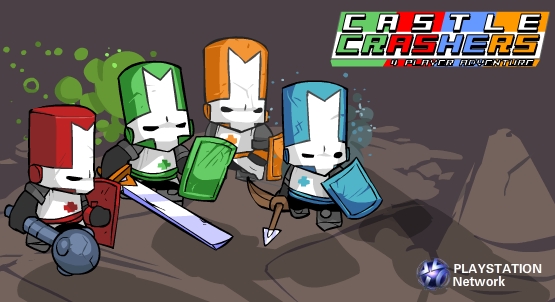#IndieSpread - The Hard, the Challenging and the Impossible. Indie Games and the Allure of Challenge.
So, another week, another IndieSpread post.
Last week, I covered lightly on the Binding of Isaac and its sequel, Rebirth (VERY lightly covered.), so this time, I figured I would talk about something that’s been on my mind for awhile regarding Indie Games I’ve played past and recently.
One thing I have picked up from playing Indie Games, is that most often, they do not match up to a lot of Triple-A titles, most often in the Graphics, Scale and Depth categories (There are some outliers though, so don’t jump to conclusions just yet!). Indie Games are made by fundamentally smaller teams and are often limited by that team’s size and skillset, as opposed to a studio with hundreds or even thousands of people working on a single project.
So, in the end, the game cannot always be as drop-dead gorgeous and massive as a Triple-A title and often Indie Titles will have an appearance which is unique/quirky/abstract that is of course, more feasible for their developers to pull off in a reasonable time frame.
What I have noticed with games that follow this trend, is that they tend to be very challenging, often to a very high degree. Games like Super Meat Boy, Castle Crashers, Really Big Sky, Ori and the Blind Forest and Rain World, are all games that may not have super-high graphical fidelity or a massive, intricate world, but have a significant amount of challenge to them.
What this made me think about, personally, is the idea that there are quite a number of Indie Games that seem to default to this particular format. It got me thinking, that perhaps, there is something more to this design choice than meets the eye.
See, a lot of older games, prior to the current age of gaming, back in the NES and SNES days, were not much more than a very basic collection of pixels with limited interactivity. A lot of times, game designers had to resort to using the game itself as the point of intrigue and there seem to be some parallels to be drawn between then and now with Indie Games.
Though on the other hand, there is the idea that challenging games attract players looking for a the achievement or bragging rights that come with beating out various difficult challenges, especially those labelled as “impossible”.
Perhaps this class of Indie Games draws from both of these points to create games that draw in people who seek the sense of accomplishment that comes from defeating such challenges. Sounds about right to me anyway.
But what do you think about this thought? Are certain Indie Games channeling the “Allure of Challenge” as a point of intrigue, or is there something else that they could be making use of? Let me know in the comment section below and as always, for anything else Indie, keep it tuned to #IndieSpread, right here, on GamerSpread.






Comments
Post a Comment